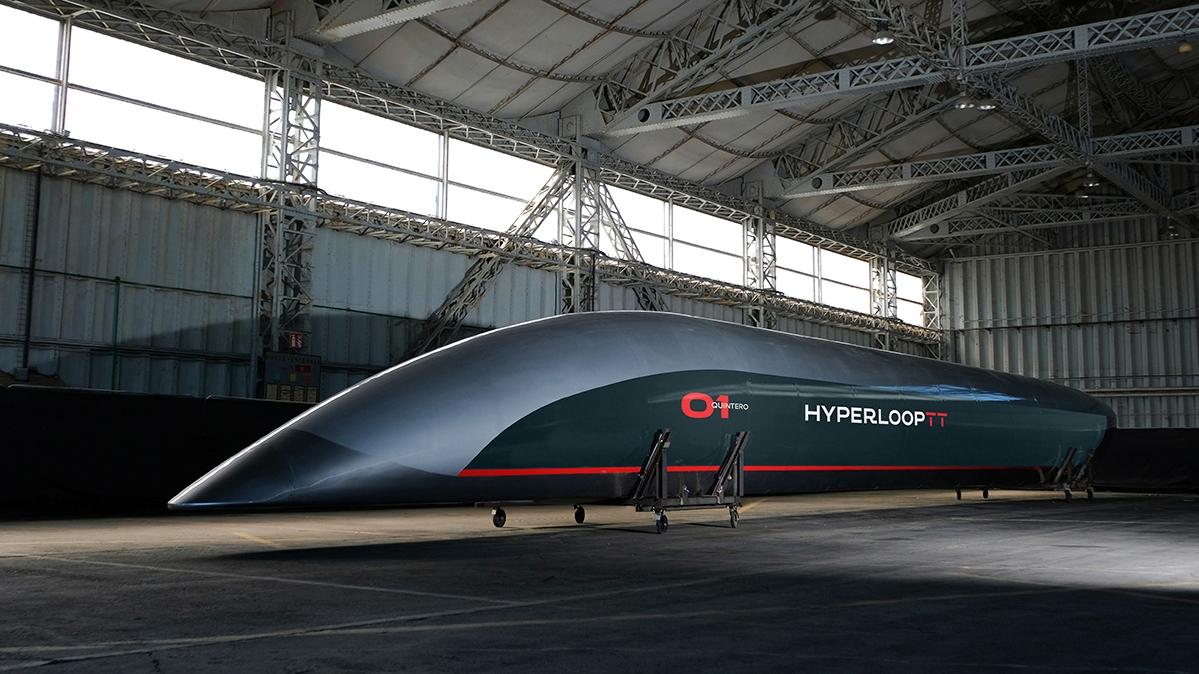January 31, 2024
Webuild Feasibility Study for futuristic Hyper Transfer project in Italy
World’s first operating prototype of high-speed transport system
Contract in JV with Leonardo. Hyperloop TT, Hyperloop Italia and Rina designated designer and technology partner

- Webuild, global leader in the sustainable mobility sector, to lead study into developing new technology model for Hyper Transfer
- The project will allow to experiment for the first time in Europe a transport system to send capsules through a vacuum tube with magnetic levitation at targeted speed of an airplane
- Positive outcome of feasibility study would have Webuild oversee project management and infrastructure development, with Leonardo developing capsule fuselage, Hyperloop TT and Hyperloop IT providers of advanced mobility technology.
- Preliminary study to build other sections, will allow to create a standard both at a national and European level for a new generation transport system
MILAN, January 30, 2024 – In Italy, the first working prototype in the world of high-speed land transport with magnetic levitation, a new means of transport that is capable of travelling at an airplane’s speed. Webuild and its joint-venture partner Leonardo have won a contract worth €4 million, for the preliminary feasibility study to build the Hyper Transfer, setting the foundations for the construction of the world’s first operating prototype estimated at a combined value of €800 million. The project, commissioned by Concessioni Autostradali Venete (CAV), will represent a preliminary test for building eventual sections in Veneto, which will allow to regulate a transport system that as of today does not exist, both at a national and European level.
Webuild leads the joint-venture with a 96.22% stake, and partner Leonardo with the remaining 3.78%. Hyperloop Transportation Technologies will be the technology supply partner and designated designer for the operating prototype, in collaboration with its licensee Hyperloop Italia. RINA joins as an additional designated designer. The JV and its partners will conduct the feasibility study under a Partnership for Innovation, a contractual scheme favouring research and development.
Hyperloop is a super-fast transportation system designed to use levitation magnets to send capsules with people and cargo travelling at an estimated speed of an airplane and above on the ground inside a tube. The low pressure within the tube reduces the friction, and thanks to propulsion systems the capsules will travel at a super high speed, ensuring sustainable mobility and a low-energy consumption. It would also help reduce traffic and improve safety on highways, contributing to lower CO2 emissions.
Hyper Transfer, which could become the first operating prototype in the world, would be developed in three successive stages, if every phase is successful: the feasibility study, (Phase 1); the design (Phase 2); then the construction and testing (Phase 3).
Webuild thus confirms its commitment to innovation and research and to the development of sustainable mobility capable of supporting the global energy transition process. The metro projects that Webuild is currently carrying out, such as the new and in Italy, will enable millions of people to move around quickly, efficiently and in an environmentally friendly way every day, thanks to state-of-the-art infrastructure, avoiding new CO2 emissions into the atmosphere every year. The ongoing high-speed rail projects, such as the and the , will also allow the country to be increasingly integrated into the TEN-T corridors, the trans-European transport network that aims to increase sustainable mobility for goods and people in the European Union.